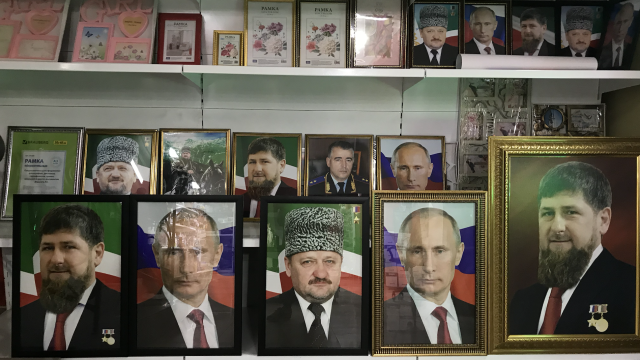About a year ago, Nina [not her real name] fell into severe depression. “I had no feelings and just wanted it to be over,” she recalls. “I had two options: suicide or medical help.”
An Internet article led her to Hospital No. 12, a psychiatric hospital in northwest Moscow that seemed to have good re- views from patients. She was admitted for free the next day, with very little bureaucracy standing in the way.
Nina expected a standard Russian psychiatric hospital experience: prison-like wards, unsympathetic doctors and medication. The longer she stayed at the hospital, however, the more she realized it was different. Doctors at Hospital No. 12 encouraged relatives and friends to visit, and they allowed patients in stable condition to go home on weekends. Their focus was not only on medication, but therapy and psychoanalysis. The hospital-pioneered new treatment regimes using yoga, swimming, massage and art.
All that is now about to change as Moscow city authorities embark on what they call an “optimization” drive of health care facilities. Hospital No. 12 is one of many earmarked for closure, either “merged” with larger in-patient facilities or disappearing altogether. Just this month, at least one other hospital was informed of significant reorganization.
As a result of the reforms, medics fear Moscow and its 12 million residents will be left with just three mental hospitals. “This is simply ridiculous,” says Yury Savenko, president of
the Independent Psychiatric Association. “It isn’t even close to being enough for a metropolis like Moscow.”
A Unique Hospital
Hospital No. 12 made headlines in late November when doctors and patients launched an online petition calling calling for authorities to save the facility.
“The hospital has been operating since 1914 ... the changes essentially mean the hospital’s existence will end,” the pledge read. As of Dec. 6, nearly 6,000 had signed the petition.
Hospital No. 12 is a unique facility in Moscow in offering outpatient services to patients in borderline psychiatric state.
“They were real professionals, saving lives there,” says Yelena Kostyuchenko, a reporter for the Novaya Gazeta newspaper, who is a former patient. “Their doctors knew how to deal with people in grief, people in shock. They treated victims of terrorist attacks, prevented many suicides, and dealt with post-traumatic stress disorder in people returning from war.”
Moscow’s Health Care Department ignored a request for comment. Alexei Khripun, head of the department, referred The Moscow Times reporter to his spokespeople.
Earlier this month, however, Moscow City officials told Russian media outlets that patients and doctors “would only benefit” from merging the hospital No. 12 with the larger Solovyov Neuropsychiatric Center.
Clinicians at the hospital disagree. “The Solovyov Center is different, with different approaches to treating people,” says psychotherapist Lina Yegorova. “Most importantly, it’s a closed in-patient facility, quite unlike us and our open doors. You wouldn’t be able to come and go there.”
Ulterior Motives
City officials argue that the existing system of psychiatric care is ineffective. Too many hospital beds are not being used, while the outpatient care is underdeveloped, they say.
“They are referring the European model, where the number of psychiatric hospital beds went down over the years,” says a psychiatrist from hospital No. 15, another psychiatric facility on the chopping block, on condition of anonymity. “In Europe, the number of beds per 100,000 people gradually de- creased from 400 to 100-120, but in Russia they’re trying to cut down the existing 130 beds.”
Questions about why these particular hospitals are being absorbed into other facilities — and not, for example, the other way round — remain unanswered by authorities, the psychiatrist added.
At Hospital No. 12, doctors and patients believe that an ulterior motive could be at play, and that authorities are more interested in the land for development purposes. “The territory the hospital occupies is great,” says Kostyuchenko. “It is close to a metro station, it has a big, beautiful historical park and is housed in a sublime art-nouveau building. It is not the first time that authorities have tried to take over the land.”
The hospital No. 15 — a large facility with some 800 hospital beds — will meanwhile be turned into a psychiatric care home.
Read more about what Russian psychiatric care homes are like: Psychiatric Care Homes in Need of Drastic Reforms, Experts Say
According to the psychiatrist, who has seen full government plans, only three in-patient psychiatric facilities will remain in Moscow following the reorganization. This is down from 16 facilities open at the beginning of the decade.
Moscow’s health care department has promised to open 20 new outpatient psychiatric health centers to counteract the closures, as well as increasing the number of psychiatric wards in existing clinics.
Outpatient services can replace hospital care for some patients, agrees Matthjis Muijen, mental health program manager at the World Health Organization’s Europe office. But a crucial part of such reorganization are outreach teams — these are necessary to make sure patients follow treatment regimens and visit their doctors as frequently as they need to. Moscow does not currently have such teams in place.
Russia’s psychiatric professionals also question whether the switch is likely to prove effective in the Russian context. “Our colleagues in several Eastern European countries tried implementing this model, and found that it costs much more,” Savenko from the Independent Psychiatric Association says.
“If we’re saying our country has the money — fine. The problem is we tend to prefer spending money on weapons rather than healthcare.”
A Message from The Moscow Times:
Dear readers,
We are facing unprecedented challenges. Russia's Prosecutor General's Office has designated The Moscow Times as an "undesirable" organization, criminalizing our work and putting our staff at risk of prosecution. This follows our earlier unjust labeling as a "foreign agent."
These actions are direct attempts to silence independent journalism in Russia. The authorities claim our work "discredits the decisions of the Russian leadership." We see things differently: we strive to provide accurate, unbiased reporting on Russia.
We, the journalists of The Moscow Times, refuse to be silenced. But to continue our work, we need your help.
Your support, no matter how small, makes a world of difference. If you can, please support us monthly starting from just $2. It's quick to set up, and every contribution makes a significant impact.
By supporting The Moscow Times, you're defending open, independent journalism in the face of repression. Thank you for standing with us.
Remind me later.






